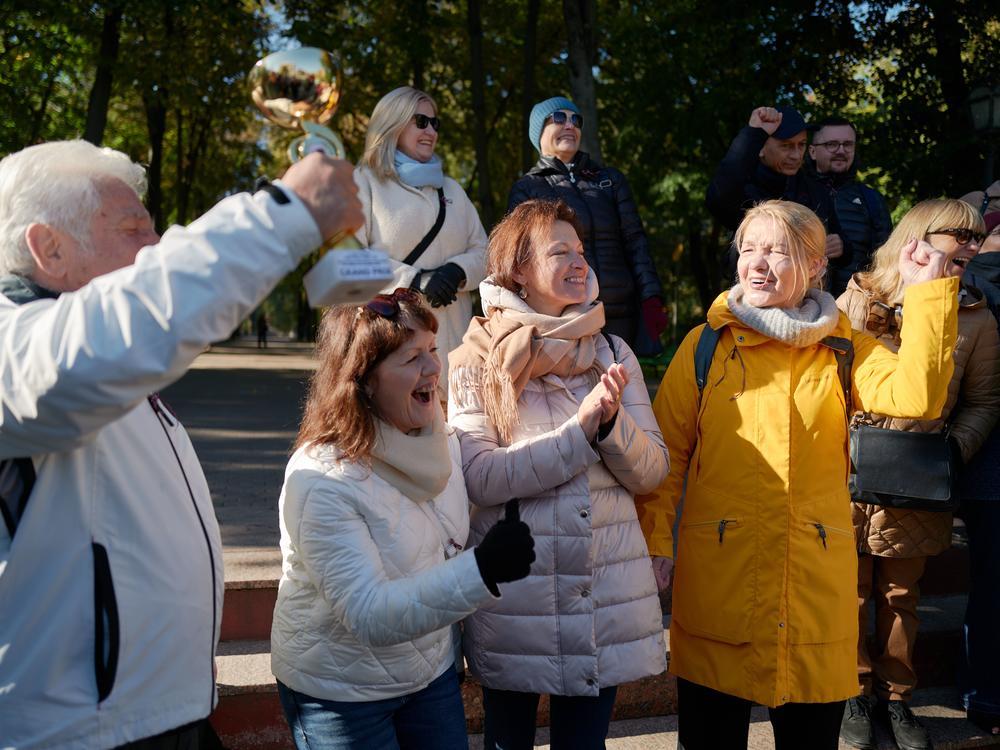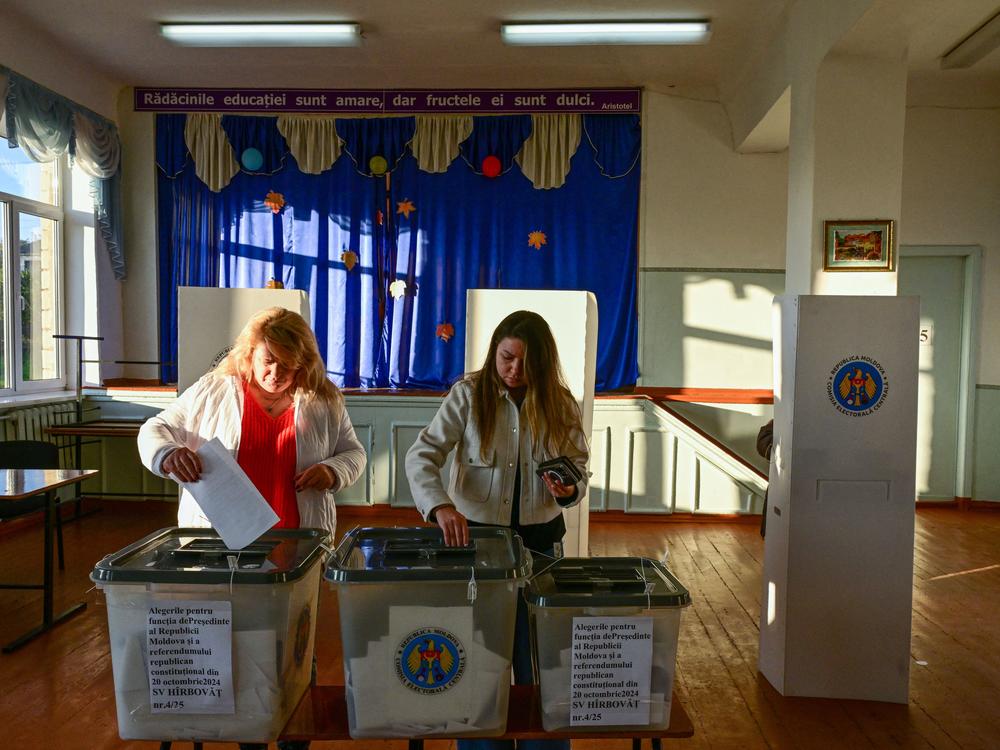Section Branding
Header Content
Moldova barely approves its EU referendum amid allegations of Russian interference
Primary Content
The former Soviet republic of Moldova voted in favor of securing a path into the European Union on Sunday, in a national referendum that was charged with geopolitical significance and shadowed by accusations of Russian election interference.
The vote enshrines Moldova’s pursuit of EU membership in the country’s constitution, marking a fundamental move away from more than a century of Russian influence.
But the referendum passed by the slimmest of margins — with just 50.39% voting "Yes," according to the Central Electoral Commission — injecting ambiguity into a vote that EU supporters had hoped would showcase the country's widespread desire for a European future. The vote appeared to raise questions about the extent of popular support for policies, such as joining many of the Western sanctions against Moscow over its 2022 invasion of Ukraine, that have earned Moldova plaudits in the West but stoked tensions with the Kremlin.
“It was a huge political risk for them to go this route and to have the referendum, and it didn't pay off,” said an observer on the ground who requested anonymity to speak candidly with NPR about the apparent strategic miscalculation.
“It absolutely feeds into the narrative that the people of Moldova are very conflicted and are not in overwhelming agreement that they should join the EU.”
Moldova voted for president, too
Moldova also held a presidential election Sunday, which also failed to bring the resounding win leaders hoped for. President Maia Sandu led all challengers but came out with 42.45%, falling short of what she needed for a first-round victory.
Sandu now faces a runoff on Nov. 3 against Socialist Party candidate Alexandr Stoianoglo, a former prosecutor who boycotted the EU referendum and suggested Moldova would be better off seeking smoother relations with Russia.
Sandu’s political fortunes may rest on how many other opposition candidates — there were 10 in the race initially — choose to consolidate around Stoianoglo in the coming days.
In the meantime, Sandu claimed victory but said there had been “an unprecedented assault” on Moldovan democracy that distorted the outcome.
“The people of Moldova have spoken: our EU future will now be anchored in the constitution. We fought fairly in an unfair fight—and we won,” she wrote on the social media platform X.
Interference claims
The votes unfolded amid accusations in Moldova and the EU that Russia tried to influence the vote with disinformation that claimed a vote for the EU was likely to draw Moldova directly into the Ukrainian conflict.
In advance of the vote, Moldovan police said they uncovered a mass vote-buying scheme. Ilan Shor, a fugitive Moldovan oligarch currently living in Moscow, had openly offered to pay Moldovans cash to vote against the EU bid, the authorities said.
Shor rejected the allegation as an "absurd spectacle," according to Russia's Tass news agency.
Western election monitors suggested it was too early to judge the degree to which what they described as a “hurricane” of disinformation as well as vote buying contributed to the referendum’s razor-thin margin.
“An individual user opens up their social media and they're seeing ... three or four or five comments that are completely unrelated to the posts,” says Stephanie Rust, of the National Democratic Institute, a U.S.-government funded organization that supports democracy. Instead, Rust says, the comments were all casting doubt on the EU or denigrating President Sandu.
Meanwhile, the Kremlin has vehemently denied interfering in the elections, and suggested European promises to bring new investments were more direct attempts to sway the vote.
Reacting to the results published Monday, Kremlin spokesman Dmitry Peskov suggested a late surge in pro-EU ballots had also “raised questions” about the referendum’s integrity.
Outside the Moldovan Embassy in Moscow Sunday, long lines snaked around the block as thousands of citizens abroad turned out to cast ballots at the city’s two lone polling stations.
Most campaigned openly against the EU vote.
“We have no future in Europe,” said Lyubov Kuzmina, an entrepreneur who said she sent remittances home to relatives in Moldova. “Just look at the price of gas. Today Moldova buys it from Europe at three times the price” compared to Russia, she said.
“Everyone perfectly well understands that the European Union has no intention of accepting Moldova,” added Tatiana Tsurka, a recent university graduate. She said she moved to Russia for economic reasons but hoped to one day return home to Moldova, which is one of the poorest countries in Europe.
Still, others suggested that the referendum — and Kremlin pressure to oppose it — amounted to Moldova being force-fed a choice many would rather avoid.
“I wouldn’t want our vote for closer relations with Russia would mean the West is no longer of interest to us,” says Anatoly Popenko, a Moldovan who runs a construction business in Moscow. “That’s just dumb."
Charles Maynes reported from Moscow. NPR’s Frank Langfitt, who reported from Moldova in 2022, contributed to this story from Washington, D.C.


